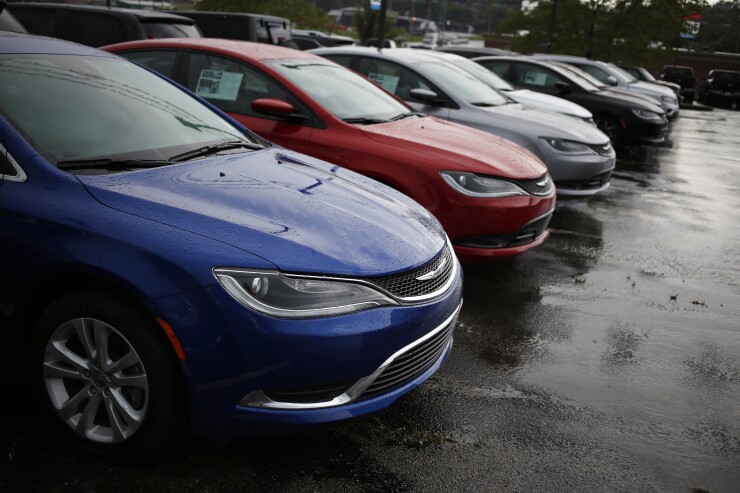Due to come to the market in November, Juniper Receivables 2019-2 DAC will issue about $2.1 billion in securities backed by retail auto loan contracts.
Juniper’s assets are largely prime quality retail installment auto loans originated by Ally Bank. The collateral pool has about 132,025 contracts, according to Moody’s.
Investors will likely look to Ally Bank’s deep experience in asset-backed securities sponsorship, as well as that of its parent, Ally Financial Inc., and a consistent credit profile in the underlying collateral pool to buoy the notes from Juniper Receivables 2019-2 DAC.

Ally Bank has issued auto lease asset-backed securities for ten years. Ally Financial has a long track record on the securitization market as predecessor company GMAC, which had a presence going back to the mid-1980s. Moody’s points to this experience as one of the deal’s key credit strengths.
Moody’s described the current deal’s credit profile as similar to the previous deal, 2019-1. For example, the current pool’s weighted average FICO score of 683 is in line with the previous deal’s WA FICO score of 682.
Yet there are credit challenges, according to Moody’s. Credit enhancement on the Class-A notes includes an overcollateralization of 4.8% of the initial pool balance, and a target of 5.3% of the current pool. It also has a floor of 0.25% of the initial pool balance; and a reserve of 1.70%. Both the overcollateralization and the reserve will experience a decline, initially, before they hit their respective 0.25% initial pool balance, a feature that is different from most auto ABS deals.
Interest rates collected from the collateral supporting the notes, including overcollateralization, do not generate much excess spread in the deal, according to Moody’s. If losses escalate on the deal, then overcollateralization can quickly erode, depleting the excess spread and leading to negative excess spread.
Used-car prices are rising, but are still at risk of falling, Moody’s noted. Many fleets of leased vehicles are due to reach the end of their lease terms, which could increase the supply of product and lower prices.
Moody’s assigned provisional ratings of ‘Baa3’ on class A, a tranche with $2 billion in notes. The OC class has no ratings and represents $101 million in notes.





